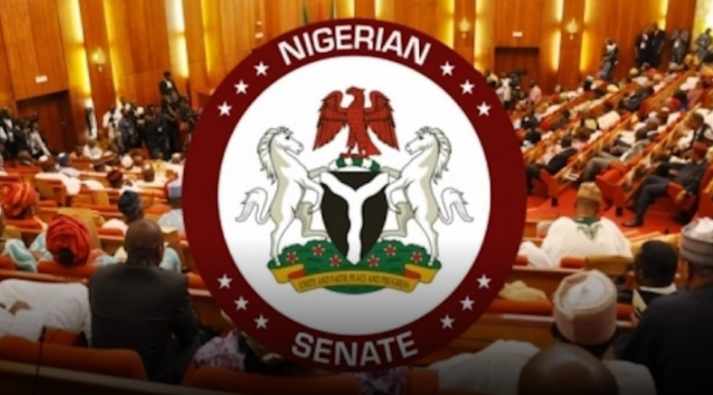
“‘Gym Before Love?’ — Diana Sparks Ignites Nationwide Debate After Linking Fitness Discipline to Emotional Boundaries

Media personality Diana, widely known by her social handle @DiianaD, has stirred a heated national conversation after sharing her thoughts on the often-unspoken “terms and conditions” attached to working out, self-discipline, and emotional relationships. In a post that quickly went viral across Nigerian social media spaces, she highlighted how commitment to fitness extends far beyond the gym, subtly linking it to how people handle intimacy, emotional connections, and personal boundaries. What appeared at first like a simple lifestyle opinion has now exploded into a full-blown cultural moment.
Diana’s comment, which gathered close to 300,000 views within hours, was triggered by a conversation about discipline, self-respect, and the way individuals choose partners or companions on their personal journeys. Her statement—“Love goes with feelings, you can't have s*x with a person you don't…”—though cut short in the circulating screenshot, immediately set off interpretations from all angles. Many readers believed she was drawing a comparison between the emotional requirements of intimacy and the mental discipline needed for fitness, while others insisted she was speaking about how personal principles shape lifestyle choices.
The post appeared on Instablog9ja and quickly crossed over to X (formerly Twitter), where it ignited a flood of reactions, arguments, and think pieces. Some praised her for speaking boldly on a topic many avoid, while others accused her of oversimplifying the complexities of human relationships. Whatever the case, Diana had achieved what few influencers do with a single post: spark a national conversation that touches the very core of how people balance physical goals with emotional boundaries.
For many supporters, Diana’s perspective resonated deeply. They argued that hitting the gym, maintaining a routine, and adopting a healthier lifestyle requires a level of discipline that naturally spills into other areas of life. To them, anyone who takes control of their body is more likely to take control of their emotions, place value on meaningful connections, and avoid casual entanglements that lack emotional depth. These supporters described her statement as a “refreshing reminder” that fitness is not just a physical journey but an emotional, spiritual, and mental transformation.
Across social media, several users shared personal stories of how adopting strict workout routines helped them refine not just their muscle tone but their standards, choices, and relationships. Some women wrote about leaving toxic relationships because the confidence gained at the gym gave them the strength to walk away. Some men shared how discipline from fitness taught them how to manage emotions, build intentionality, and choose partners based on connection rather than convenience. To them, Diana’s message was more than lifestyle commentary—it was a hard truth wrapped in a simple observation.
But as with every public debate, not everyone agreed. Critics argued that linking fitness discipline to emotional relationships was a stretch, with some claiming that workout routines have nothing to do with sexual or emotional boundaries. Others insisted that love and intimacy are far too complex to be defined by gym analogies, accusing Diana of promoting unrealistic standards. According to this group, many emotionally intelligent people do not work out regularly, and many gym enthusiasts still make questionable romantic choices. They saw the comment as a generalization, an unnecessary moral spin on a simple lifestyle preference.
Some also accused her of “policing people’s feelings,” saying that sex and emotions are not always intertwined, especially in a modern world where relationships come in various forms. These critics argued that Diana’s message might unintentionally shame people who separate physical intimacy from emotional connection. The conversation quickly expanded into debates on consent, personal values, modern dating culture, and generational differences in understanding relationships.
Meanwhile, neutral voices stepped in to explain that Diana’s message may not have been meant to generalize or judge but to highlight her personal philosophy—one that requires emotional alignment in all forms of closeness. To them, she was simply expressing how her commitment to self-improvement influences her lifestyle choices, including who she allows into her space. They argued that every individual has the right to set boundaries shaped by their beliefs, discipline, or past experiences.
As the debate intensified, it became clear that this was not simply about one woman’s fitness habits—it was about how Nigerians interpret love, discipline, and self-worth in a changing world. The younger generation especially found the conversation relatable, noting that many people today are becoming more intentional about who they allow access to their lives. For them, Diana’s post underscored the rising trend of prioritizing mental health, emotional safety, and personal development over casual or unaligned relationships.
Influencers, relationship experts, lifestyle coaches, and content creators quickly joined the conversation, offering their interpretations. Some lifestyle therapists explained that physical discipline often influences emotional stability, noting that people who practice self-regulation in one area tend to extend it to others. Others countered that emotions are unpredictable and cannot always be tamed by routines or workout plans.
Despite the divided opinions, one thing is clear: Diana’s post struck a nerve in a society where conversations around intimacy and emotional responsibility are often avoided or reduced to jokes. Her words unexpectedly cut through the noise, prompting thousands to reflect on whether their physical goals align with their emotional choices—or if they compartmentalize their discipline in ways that hurt them in the long run.
Interestingly, the debate also highlighted a recurring truth: Nigerians are becoming increasingly open to discussing the intersection between lifestyle and relationships. Conversations that once stayed behind closed doors are now unfolding publicly, reshaping how people view love, sex, boundaries, and personal growth. Diana’s post, whether by intention or coincidence, tapped into this growing cultural shift, offering a spark that lit up a much larger fire.
As the post continues to circulate across social media platforms, Diana herself has yet to issue a follow-up message or clarification. Her silence has added a layer of mystery, leaving many eager to know whether she will expand on her thoughts or leave the interpretation entirely to the public. Regardless of what she chooses, the discourse she triggered is showing no signs of slowing down.
For now, what started as a simple post about gym discipline and emotional boundaries has become a mirror held up to society. Whether people agree with her or not, Diana succeeded in drawing attention to how intertwined our physical, emotional, and relational lives truly are. She reminded everyone that in a world where many rush from one connection to another, the real conversation is not just about the body or the heart—but about the fragile balance between the two.

